Course Overview
Course summary
Our innovative Fine Art Mixed Media BA will give you the opportunity to explore and develop work across boundaries, within the ever-expanding contemporary fine art disciplines.
Our course enables you to work across disciplines or within the more traditionally defined areas of practice, while referencing relevant critical and theoretical debates.
You'll be encouraged to bring highly individual approaches to studio practice, coupled with an emphasis on experiential learning – these are the defining factors that have established the course at the cutting edge of contemporary practice.
We encourage creativity, individuality and personal growth, and once you've acquired the basic skills you can negotiate your own individual programme of study with tutors.
We select only the most dedicated and creative students who have the energy, enthusiasm and commitment that our course requires.
Based at our Harrow Campus, you'll work alongside students from film, photography, music, fashion and journalism, in a unique hothouse of creative opportunity.
Our studio-based course provides you with a permanent space, depending on the type of work you engage with as you progress through the programme.
You'll be taught by practising artists with national and international profiles working in and across the mediums of sculpture, painting, moving image, performance, photography and sound. Our exceptional team are supported by state-of-the-art facilities and workshops that are at the forefront of current technical innovation.
Our teaching and learning methods will encourage you to create a body of work characterised by personal commitment and an increasing sense of autonomy.
Our teaching methods include lectures, tutorials (individual and group), presentations, crits, workshops, and gallery visits and talks.
Fine art disciplines include:
- Digital
- Drawing
- Installation
- Intervention
- Interdisciplinary
- Moving image
- Painting
- Performance
- Photography
- Printmaking
- Sculpture
- Sound
Top reasons to study with us
- Westminster is ranked 2nd in the UK in the Complete University Guide 2025 for ‘Research Quality’ in Art and Design
- Your own studio space – You'll have your own fine art studio space for the duration of your course in which to experiment with your practice
- Dedicated facilities and technical support staff – You'll have access to specialist facilities including professional darkrooms and processing facilities, a photographic green screen and film studios, moving image editing suites, 3D workshops, digital facilities and traditional printing areas
- Open supportive environment – We'll support you in exploring your fine art practice, using interdisciplinary mixed media and cutting-edge processes alongside traditional media
- Develop your professional practice – You'll develop your professional practice via dedicated modules giving you direct practical experience, helping you decide on and pursue a career in the creative arts
- Optional field trips – You'll have the opportunity to take part in field trips abroad and within the UK. Past destinations have included New York, Berlin, the Venice Biennale, the Kassel documenta
- Learn through exhibiting – You'll exhibit your work regularly throughout the course, culminating in your degree show at the internationally acclaimed central London gallery space, Ambika P3
Course structure
The course emphasis on creativity and individuality is supported by regular tutorials and studio discussion. This encourages you to explore different approaches to practice, coupled with technical introductions and workshops, enabling you to conceive increasingly ambitious projects.
Contemporary fine art practice is the focus of debate in both lectures and the studio, supported by the programme of visiting artists and lecturers. You'll develop increasing insight into the exciting and diverse contemporary London art scene.
In Years 2 and 3, you will continue to focus on your chosen area of practice. Experimentation and innovation are consolidated, and you'll undertake a work placement within the creative industries to test your emerging aspirations.
Contextual studies, theory and practice are allied, with you defining the topic through tutorial discussion for your Research Project. The final year culminates in the degree show, and you'll engage in fundraising, promotion and curation of this public event.
The following subjects are indicative of what you will study on this course.
Subjects of study include:
- Contemporary Fine Art Practice Experimentation
- Creativity and Collaboration
- Introduction to Mixed Media Fine Art Practice
- Sources of Contemporary Fine Art Practice
Credit Level 4
Subjects of study include:
- Concepts of Contemporary Art Practice
- Contemporary Fine Art Ideas & Form
- Contemporary Fine Art Practice 2.1 Exploration & Development
- Contemporary Fine Art Practice 2.2 Presentation
- Work Based and Placement Learning
Credit Level 5
Between Year 2 and 3, you may also undertake an optional year-long placement. If you take advantage of this option, you’ll undertake an additional year-long industry placement module running parallel to your work placement, and your final degree award will be BA Honours Fine Art Mixed Media with Professional Experience.
Find out more about the costs involved in taking a placement year.
Subjects of study include:
- Contemporary Fine Art and Professional Practice: Realisation 3.2
- Contemporary Fine Art Practice: Research and Development 3.1
- Research Project
Credit Level 6
Studying the Fine Art Mixed Media BA
For more details on course structure, modules, teaching and assessment Download the programme specification (PDF).
To request an accessible version please email [email protected]
Get your copy of the University of Westminster prospectus and browse the range of courses on offer.
Contact us for general course enquiries:
+44 (0)20 7911 5000 EXT 65511
(Mon–Fri, 10am–4pm BST)
Live chat with us
(Mon–Fri, 10am–4pm BST)
Open days
Join us at an open day online or on campus. Get a feel for student life at the University of Westminster and talk to course leaders and our support teams.
Can't attend? See more open events
More ways to meet us
Careers
Build industry connections
Our dedicated Work Based and Placement Learning module will help you to develop strong links within the fine art sector in London and beyond.
Be inspired by our graduates
Course alumnus Oscar Murillo was a collective winner of the Turner Prize in 2019.
Show your work
You'll benefit from exhibiting your work regularly with us, culminating at our acclaimed gallery space Ambika P3 in the heart of central London.
Graduate employers
Graduates from this course have found employment at organisations including:
- Annka Kulty Gallery
- Artists Damien Hirst and Phyllida Barlow
- Bluecoat Gallery, Liverpool
- Camden Art Centre
- Tate Modern
Work experience
All of our students develop strong links within the fine art sector in London and beyond through our dedicated Work Based and Placement Learning module. Our teaching staff are active practitioners in their field producing and showing work internationally.
Artists and organisations where students have volunteered/worked during the course in the past include:
- Blain Southern Gallery
- Brian Eno, Artist and Musician
- Camden Art Centre
- CORE Arts Therapy
- Dairy Arts Centre
- David Zwirner Gallery
- Elle Decor Magazine
- Estorick Collection
- Heath Robinson Museum
- Hew Locke, artist
- Guest Projects London
- Kettle Yard, Cambridge
- Larry Achiampong, artist
- Limoncello Gallery
- London Art Fair
- Mark Titchner, artist
- Matt Collishaw, artist
- Milton Keynes Gallery
- MIRAJ Magazine
- Monster Chetwynd, artist
- Richard Woods, artist
- Rob Tufnell Gallery
- Rose Wylie, artist
- Royal Opera House, Covent Garden
- Saatchi Gallery
- Wei Hua, artist (in-studio, in China)
- White Cube Gallery
- Yinka Shonibare, artist
Job roles
This course will prepare you for a range of roles, including:
- Advertising executive
- Artist
- Arts educator
- Curator
- Features writer
- Gallery owner or director
- Journalist
- Moving image production professional
- Museum archivist
Industry links
Our fine art students are commissioned each year by Travis Smith, a City of London law firm, to provide works for display in the law firm's public-facing London offices.
In the past, students from both the Royal Academy and the Royal College of Art have visited our Fine Art Mixed Media BA course every year, delivering workshops and artist talks, offering a unique perspective of young, up-and-coming professional artists.
We have a wide range of guest speakers join us, which in the past has included:
- Dan Hays
- Dexter Dalwood
- Francis Sommers
- Grayson Perry
- Hayley Newman
- Ian Davenport
- Jem Finer
- Jeremy Deller
- John Hill
- John Smith
- Karen Russo
- Labita Clayton
- Larry Achiampong
- Laure Provost
- Lindsey Seers
- Maggie Ellis
- Matt Collishaw
- Molly Soda
- Oscar Murillo
- Phoebe Cummings
- Rupert Ackroyd
- Simon Faithful
- Uriel Orlo
Graduate success
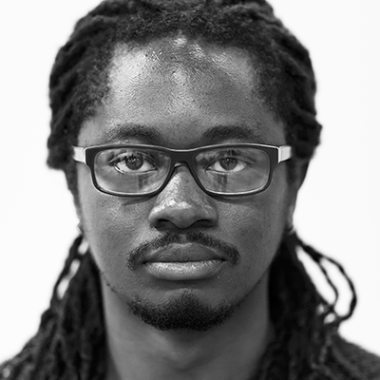
Larry Achiampong
Fine Art Mixed Media BA - 2005
Larry has performed and presented projects at Tate Modern, Tate Britain, Somerset House, Documenta 13 Kassel, BFI, David Art Foundation and MOMA Oxford.
He completed a BA in Fine Art Mixed Media at University of Westminster (2005) and an MA in Sculpture at Slade School of Fine Art (2008). He lives and works in London. "Thank you so much to the tutors for your support. If I hadn't done the video module (no longer taught, however students can still learn video skills as part of the course) in the first year, I'm not sure I would be making films like this - it's something I will never forget."
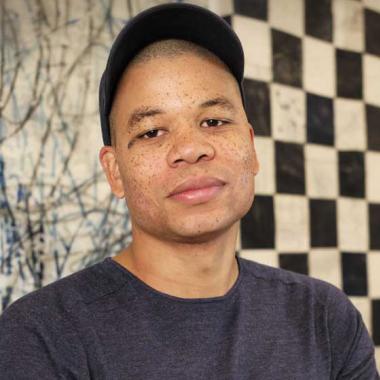
Oscar Murillo
Fine Art Mixed Media BA - 2007
Oscar was a collective winner of the Turner Prize in 2019. Solo exhibitions include South London Gallery and David Zwirner London. Oscar participated in the 2015 Venice Biennale and Forever Now at MOMA New York.
"The University of Westminster was my very first experience of an incredibly supportive educational system that nurtured my desire to develop into the complexities of being an artist in today's world.
This was due to the honest relationships I had with the tutoring cohort, my peers and, to my surprise, its positive distance away from the disruptive energy of the city of London."
Mandy El-Sayegh
Fine Art Mixed Media BA - 2007
Mandy had a solo show at the Chisenhale in 2020 and has exhibited at Carlos Ishikawa, Carl Kostyal and the Sharjah Biennial 13, 2017.
"The course helped me to gain a profound foundational understanding to develop my practice, as the tutors were invested in a way that is probably less common in other courses in London.
I was offered a real freedom to experiment and make mistakes, but also got a good reality check into what it could mean practising art outside the institution. This, for me, was valuable."
International Opportunities
Many of our courses offer international study and work experiences, and the University provides other global opportunities that all students can apply for – so whatever you're studying, you'll have the chance to go abroad.
Opportunities could include:
- Taking part in semester or year-long exchanges at institutions around the world
- Attending an international summer school or field trip
- Developing your CV through volunteering or work placements abroad
International experience broadens horizons, boosts self-confidence, and improves global understanding, alongside being fantastic for your career.
Find out more about our international opportunities, including funding options and where you can go.
Course Leader
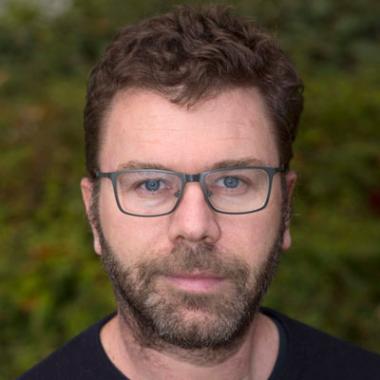
Raine Smith
Senior Lecturer
Raine Smith leads the Fine Art Mixed Media BA course.
His fine art practice spans 20 years and has led to him working with Tate Modern and Camden Arts Centre as well as exhibiting internationally.
His practice engages with lens-based media, such as photography, and sculpture.
We are interested in your passion and drive to pursue fine art with the view to enable you to explore and enjoy your practice.
Course Team
- Maria Bartolo - Senior Lecturer
- Stuart Cumberland - Senior Lecturer and Researcher
- Peggy Atherton - Senior Lecturer
- Pete Owen - Senior Lecturer
- Dr Sarah Pucill - Reader
- Raine Smith - Senior Lecturer
- Kerry Stewart - Senior Lecturer
- Douglas Fishbone - PTVL - DCDI
- Tessa Peters - Senior Lecturer
- Shezad Dawood - Senior Research Fellow
- Phillip Allen - PTVL - DCDI
- Daniel Burley - Staff
Why study this course?
Learn in an open, supportive environment
Explore your fine art practice while being supported by our academic and technical staff.
Easy access to central London
Based just a 20-minute tube ride from the heart of the city, you'll be perfectly placed to access the work experience opportunities, potential collaborators and art scene of central London.
Benefit from your own studio space
You can experiment with your practice in your own dedicated fine art studio space for the duration of your course.
What our students say
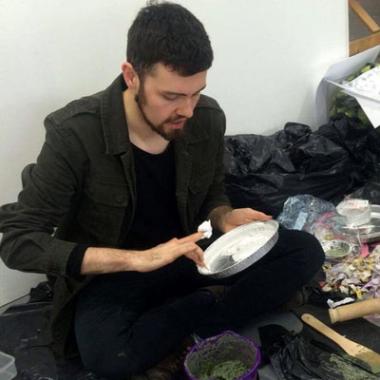
Jack Evans
Fine Art Mixed Media BA
"I had a really enjoyable experience during my three years at university playing with a range of mediums, without the pressure of restricting myself to a particular pathway - this allowed my practice to thrive somewhere between drawing and installation.
The tutors are fab, with a huge bank of experience and knowledge of the contemporary art scene in London."
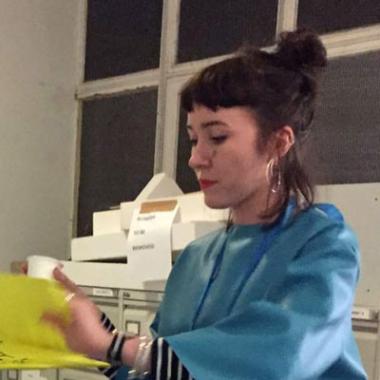
Kitty Tredwin
Fine Art Mixed Media BA
"I found the tutors some of the most inspiring people I have met while living and studying in London. As they have each led a life of art through different mediums and different artistic paths there is a great number of ways they help their students.
I also personally found it really great to watch the tutors put on their own show in Berlin and London - they showed us how to work hard, how important it is to be invested in your ideas and how fun the real art world is outside of university."
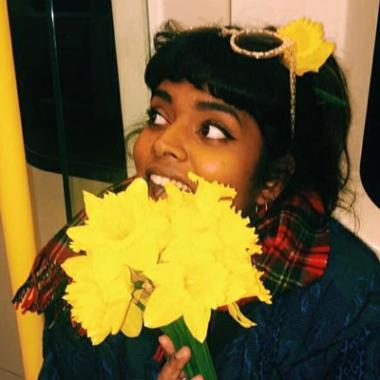
Kavitha Balasingham
Fine Art Mixed Media BA
"The studios are huge! Do not take them for granted, you will miss them when you are gone. There were also lots of artist talks. I had weekly one-on-one meetings with tutors to help my development.
Some modules push you to work in galleries and learn more about the outside world. This course has helped prepare me for life after university, introducing me to lots of connections."
What our students say
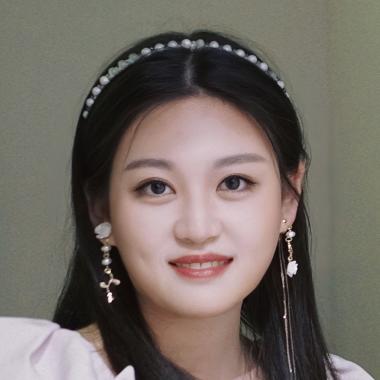
Yuqi Wang
Fine Art Mixed Media BA - 2023
What I've greatly appreciated about my course is its unrestricted nature. The Fine Art Mixed Media BA encompasses a broad spectrum, including painting, installations, performances, films, and more. You could be making a movie one semester, and organise a band for a performance art show the next, with this course you are not limiting your pursuits.
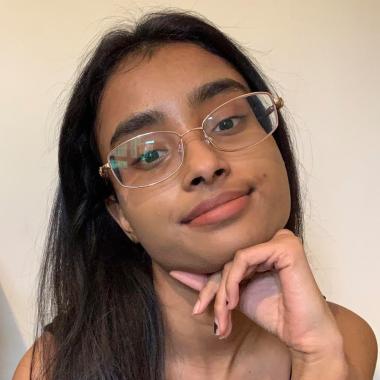
Hansnii Aukhjee
Fine Art Mixed Media BA - 2023
The Fine Art Mixed Media course at the University of Westminster is designed to be highly independent. This has granted me the freedom to explore and work with a wide array of materials and subjects that align with my personal interests and artistic practice.
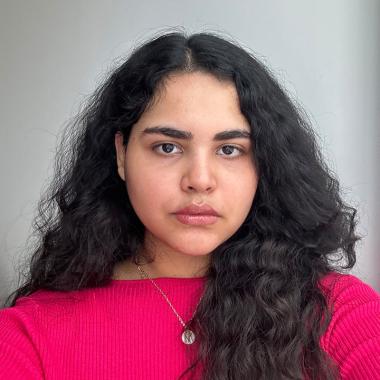
Rainha De Souza
Fine Art Mixed Media BA - 2023
My course has been an exciting and an extensive journey of learning and development. I particularly enjoyed the freedom of experimenting with variety of different media in my creative practice. Moreover, the collaboration with tutors and like-minded peers made the learning experience more enthralling.
Entry Requirements
- A levels – CCC (96 UCAS Tariff points)
- T levels – 96 UCAS Tariff points
- International Baccalaureate – 96 UCAS Tariff points from all components of the Diploma Programme. International Baccalaureate Career-related Programme will be considered on a case-by-case basis
- BTEC Extended Diploma – MMM in a creative subject
- BTEC Diploma – DD in a creative subject
- Access – 96 UCAS Tariff points from the Access course
We also welcome applications from students who are taking a combination of qualifications listed above. For further information, please contact Course Enquiries.
In addition to one of the above, you should have:
- GCSE English Language grade 4/C – IB grade 4 Higher level, GCSE Maths Pass – IB Pass
If your first language is not English, you will need an IELTS of 6.0 overall, with 5.5 in each component.
View more information about our entry requirements and the application process
Portfolio guidance
Number of recommended portfolio pieces.
For online portfolio’s we recommend no more that 20 pages. Physical portfolios can include sketch books and other work, where appropriate you may wish to include painting, small sculptures, Zines etc.
What should I include in my portfolio submission?
We would like to see a selection of images of your fine art work
- This should include images from your sketchbook work (if not online) ,where your ideas started and how they developed
- Include your finished outcomes remember to document this work with the view to demonstrate the wider context of how the work was shown. Think about how you can collate/curate these images within your digital portfolio.
- It will also be useful for you to include short pieces of text which could help us understand your work and processes.
- We will also be looking for an awareness and interest in contemporary fine art evidenced by artists, periodicals, reviews, exhibition and gallery visits.
- Where appropriate please include work you have made through your own initiative. We are looking to see your creative and experimental approach to fine art practice so look for work which demonstrates your passion and interest in fine art.
How should I structure my portfolio?
- For digital portfolio's This should be submitted as a PDF file preferably under 10MB; it can include links to online materials.
- Consider the order you present he work, showing us your initial development and research alongside your outcome/s.
- Include areas of experimentation regardless of how this worked progressed.
- When documenting and collating your work for your portfolio consider what sort of images you need to include to describe the experience of viewing your work, have you had the chance to exhibit your work for example.
- It will also be useful for you to include short pieces of text which could help us understand your work and processes.
How will my portfolio be evaluated?
Your portfolio will enable us to see the work you enjoy making, what inspires your practice and your passion for arts based subjects. We are interested to see if your interests align with the course and whether the university of Westminster would be a good choice for you to study with us. Your portfolio will also give us insight into your awareness and interest in contemporary fine art evidenced by artists, books , online sources, music, periodicals, reviews, exhibition and gallery visits.
What happens next?
All applicants will be offered an interview, all submitted online folio's will be reviewed alongside your written application and candidates will be invited to interview where you will have time to discuss your ambitions with the team.
Top Tip from our course team
Keep the visual presentation simple. Remember we are interested in your passion and love of (fine) Art.
- for physical portfolio’s often images on white card or paper works fine
- Remember we are not looking at the quantity or the physical size of the folio.
- If you are working with digital platforms make sure you/we can play/view your work (there are no hidden passwords)
- Check all digital links are up to date
- Keep moving image work or show reels to a reasonable length.
Please do not send in portfolios until requested to do so by the University's Admissions team. You will be notified by email about when to submit your portfolio.
- International Baccalaureate – 96 UCAS Tariff points from all components of the Diploma Programme. International Baccalaureate Career-related Programme will be considered on a case-by-case basis. You can refer to the UCAS calculator to determine your point score
- We accept a wide range of international high school level qualifications. Please see information on Country-specific entry requirements
- We work in partnership with Kaplan International College London who provide International Foundation Certificate courses for students who don’t meet our entry requirements. Upon successful completion, you can progress to your chosen degree at the University of Westminster. Find out about a range of university preparation courses that are accepted for entry.
English language requirements
- If your first language is not English, you should have an IELTS score of 6.0 overall, with a score of 5.5 in each component. Please note we accept a wide range of English language qualifications and assessments. Find out more at English language requirements.
- If you don't meet the English language requirements yet, then we offer online and on campus pre-sessional English programmes to help develop your English language skills to the required level before you start your course. Find out more about our pre-sessional English programmes.
More information
Portfolio guidance
You will be required to submit a portfolio. We would like to see a selection of images of your fine art work – this should include images of your sketchbook work (if not online) as well as finished pieces. Think about how you can collate/curate these images within your digital portfolio. We are looking to see your creative and experimental approach to fine art practice so look for work which demonstrates your passion and interest in fine art. It will also be useful for you to include short pieces of text which could help us understand your work and processes. We will also be looking for an awareness and interest in contemporary fine art evidenced by artists, periodicals, reviews, exhibition and gallery visits.
Number of recommended portfolio pieces.
For online portfolio’s we recommend no more that 20 pages. Physical portfolios can include sketch books and other work, where appropriate you may wish to include painting, small sculptures, Zines etc.
What should I include in my portfolio submission?
We would like to see a selection of images of your fine art work
- This should include images from your sketchbook work (if not online) ,where your ideas started and how they developed
- Include your finished outcomes remember to document this work with the view to demonstrate the wider context of how the work was shown. Think about how you can collate/curate these images within your digital portfolio.
- It will also be useful for you to include short pieces of text which could help us understand your work and processes.
- We will also be looking for an awareness and interest in contemporary fine art evidenced by artists, periodicals, reviews, exhibition and gallery visits.
- Where appropriate please include work you have made through your own initiative. We are looking to see your creative and experimental approach to fine art practice so look for work which demonstrates your passion and interest in fine art.
How should I structure my portfolio?
- For digital portfolio's This should be submitted as a PDF file preferably under 10MB; it can include links to online materials.
- Consider the order you present he work, showing us your initial development and research alongside your outcome/s.
- Include areas of experimentation regardless of how this worked progressed.
- When documenting and collating your work for your portfolio consider what sort of images you need to include to describe the experience of viewing your work, have you had the chance to exhibit your work for example.
- It will also be useful for you to include short pieces of text which could help us understand your work and processes.
How will my portfolio be evaluated?
Your portfolio will enable us to see the work you enjoy making, what inspires your practice and your passion for arts based subjects. We are interested to see if your interests align with the course and whether the university of Westminster would be a good choice for you to study with us. Your portfolio will also give us insight into your awareness and interest in contemporary fine art evidenced by artists, books , online sources, music, periodicals, reviews, exhibition and gallery visits.
What happens next?
All applicants will be offered an interview, all submitted online folio's will be reviewed alongside your written application and candidates will be invited to interview where you will have time to discuss your ambitions with the team.
Top Tip from our course team
Keep the visual presentation simple
Remember we are interested in your passion and love of (fine) Art
- for physical portfolio’s often images on white card or paper works fine
- Remember we are not looking at the quantity or the physical size of the folio.
- If you are working with digital platforms make sure you/we can play/view your work (there are no hidden passwords)
- Check all digital links are up to date
- Keep moving image work or show reels to a reasonable length.
Don’t forget to look at our Instagram site
https://www.instagram.com/fineartmixedmedia2/
Please do not send in portfolios until requested to do so by the University's Admissions team. You will be notified by email about when to submit your portfolio.
- A levels – CCC (96 UCAS Tariff points)
- T levels – 96 UCAS Tariff points
- International Baccalaureate – 96 UCAS Tariff points from all components of the Diploma Programme. International Baccalaureate Career-related Programme will be considered on a case-by-case basis
- BTEC Extended Diploma – MMM in a creative subject
- BTEC Diploma – DD in a creative subject
- Access – 96 UCAS Tariff points from the Access course
We also welcome applications from students who are taking a combination of qualifications listed above. For further information, please contact Course Enquiries.
In addition to one of the above, you should have:
- GCSE English Language grade 4/C – IB grade 4 Higher level, GCSE Maths Pass – IB Pass
If your first language is not English, you will need an IELTS of 6.0 overall, with 5.5 in each component.
View more information about our entry requirements and the application process
Portfolio guidance
Number of recommended portfolio pieces.
For online portfolio’s we recommend no more that 20 pages. Physical portfolios can include sketch books and other work, where appropriate you may wish to include painting, small sculptures, Zines etc.
What should I include in my portfolio submission?
We would like to see a selection of images of your fine art work
- This should include images from your sketchbook work (if not online) ,where your ideas started and how they developed
- Include your finished outcomes remember to document this work with the view to demonstrate the wider context of how the work was shown. Think about how you can collate/curate these images within your digital portfolio.
- It will also be useful for you to include short pieces of text which could help us understand your work and processes.
- We will also be looking for an awareness and interest in contemporary fine art evidenced by artists, periodicals, reviews, exhibition and gallery visits.
- Where appropriate please include work you have made through your own initiative. We are looking to see your creative and experimental approach to fine art practice so look for work which demonstrates your passion and interest in fine art.
How should I structure my portfolio?
- For digital portfolio's This should be submitted as a PDF file preferably under 10MB; it can include links to online materials.
- Consider the order you present he work, showing us your initial development and research alongside your outcome/s.
- Include areas of experimentation regardless of how this worked progressed.
- When documenting and collating your work for your portfolio consider what sort of images you need to include to describe the experience of viewing your work, have you had the chance to exhibit your work for example.
- It will also be useful for you to include short pieces of text which could help us understand your work and processes.
How will my portfolio be evaluated?
Your portfolio will enable us to see the work you enjoy making, what inspires your practice and your passion for arts based subjects. We are interested to see if your interests align with the course and whether the university of Westminster would be a good choice for you to study with us. Your portfolio will also give us insight into your awareness and interest in contemporary fine art evidenced by artists, books , online sources, music, periodicals, reviews, exhibition and gallery visits.
What happens next?
All applicants will be offered an interview, all submitted online folio's will be reviewed alongside your written application and candidates will be invited to interview where you will have time to discuss your ambitions with the team.
Top Tip from our course team
Keep the visual presentation simple. Remember we are interested in your passion and love of (fine) Art.
- for physical portfolio’s often images on white card or paper works fine
- Remember we are not looking at the quantity or the physical size of the folio.
- If you are working with digital platforms make sure you/we can play/view your work (there are no hidden passwords)
- Check all digital links are up to date
- Keep moving image work or show reels to a reasonable length.
Please do not send in portfolios until requested to do so by the University's Admissions team. You will be notified by email about when to submit your portfolio.
- International Baccalaureate – 96 UCAS Tariff points from all components of the Diploma Programme. International Baccalaureate Career-related Programme will be considered on a case-by-case basis. You can refer to the UCAS calculator to determine your point score
- We accept a wide range of international high school level qualifications. Please see information on Country-specific entry requirements
- We work in partnership with Kaplan International College London who provide International Foundation Certificate courses for students who don’t meet our entry requirements. Upon successful completion, you can progress to your chosen degree at the University of Westminster. Find out about a range of university preparation courses that are accepted for entry.
English language requirements
- If your first language is not English, you should have an IELTS score of 6.0 overall, with a score of 5.5 in each component. Please note we accept a wide range of English language qualifications and assessments. Find out more at English language requirements.
- If you don't meet the English language requirements yet, then we offer online and on campus pre-sessional English programmes to help develop your English language skills to the required level before you start your course. Find out more about our pre-sessional English programmes.
More information
Portfolio guidance
You will be required to submit a portfolio. We would like to see a selection of images of your fine art work – this should include images of your sketchbook work (if not online) as well as finished pieces. Think about how you can collate/curate these images within your digital portfolio. We are looking to see your creative and experimental approach to fine art practice so look for work which demonstrates your passion and interest in fine art. It will also be useful for you to include short pieces of text which could help us understand your work and processes. We will also be looking for an awareness and interest in contemporary fine art evidenced by artists, periodicals, reviews, exhibition and gallery visits.
Number of recommended portfolio pieces.
For online portfolio’s we recommend no more that 20 pages. Physical portfolios can include sketch books and other work, where appropriate you may wish to include painting, small sculptures, Zines etc.
What should I include in my portfolio submission?
We would like to see a selection of images of your fine art work
- This should include images from your sketchbook work (if not online) ,where your ideas started and how they developed
- Include your finished outcomes remember to document this work with the view to demonstrate the wider context of how the work was shown. Think about how you can collate/curate these images within your digital portfolio.
- It will also be useful for you to include short pieces of text which could help us understand your work and processes.
- We will also be looking for an awareness and interest in contemporary fine art evidenced by artists, periodicals, reviews, exhibition and gallery visits.
- Where appropriate please include work you have made through your own initiative. We are looking to see your creative and experimental approach to fine art practice so look for work which demonstrates your passion and interest in fine art.
How should I structure my portfolio?
- For digital portfolio's This should be submitted as a PDF file preferably under 10MB; it can include links to online materials.
- Consider the order you present he work, showing us your initial development and research alongside your outcome/s.
- Include areas of experimentation regardless of how this worked progressed.
- When documenting and collating your work for your portfolio consider what sort of images you need to include to describe the experience of viewing your work, have you had the chance to exhibit your work for example.
- It will also be useful for you to include short pieces of text which could help us understand your work and processes.
How will my portfolio be evaluated?
Your portfolio will enable us to see the work you enjoy making, what inspires your practice and your passion for arts based subjects. We are interested to see if your interests align with the course and whether the university of Westminster would be a good choice for you to study with us. Your portfolio will also give us insight into your awareness and interest in contemporary fine art evidenced by artists, books , online sources, music, periodicals, reviews, exhibition and gallery visits.
What happens next?
All applicants will be offered an interview, all submitted online folio's will be reviewed alongside your written application and candidates will be invited to interview where you will have time to discuss your ambitions with the team.
Top Tip from our course team
Keep the visual presentation simple
Remember we are interested in your passion and love of (fine) Art
- for physical portfolio’s often images on white card or paper works fine
- Remember we are not looking at the quantity or the physical size of the folio.
- If you are working with digital platforms make sure you/we can play/view your work (there are no hidden passwords)
- Check all digital links are up to date
- Keep moving image work or show reels to a reasonable length.
Don’t forget to look at our Instagram site
https://www.instagram.com/fineartmixedmedia2/
Please do not send in portfolios until requested to do so by the University's Admissions team. You will be notified by email about when to submit your portfolio.
Follow us on Instagram
View the latest work from our Fine Art Mixed Media BA students on Instagram.
Facilities
We provide dedicated, high-specification studios for our portfolio of art and design courses.
At our Harrow Campus, we have a suite of 3D making facilities which include metal fabrication, moulding and casting, wood and ceramics. There are additionally laser cutters and 3D printers, as well as a wood and metal store on campus, and we have a selection of tools available for loan.
You can also experiment in a range of media using all of the technical facilities the University has to offer. These include photographic studios and darkrooms, professional moving image production facilities including studios and dedicated edit suites, traditional printing processes including mono and silk screen printing, and dedicated digital facilities.
We have a wide range of professional photographic, sound and moving image equipment available for loan.
Student work
A selection of work created by our Fine Art Mixed Media BA students.
Westminster Degree Shows
The Westminster Degree Shows are an annual collection that showcases the creativity, vibrancy and artistic talent of our undergraduate arts courses. You can see the latest online collection on Westminster Degree Shows.
Learn new skills
Learn a new language
From Arabic to Spanish, you can learn a new language alongside your degree with our Polylang programme.
Develop your entrepreneurial skills
Our award-winning Westminster Enterprise Network offers industry networking events, workshops, one-to-one business advice and support for your startup projects.
Gain extra qualifications
We provide access to free online courses in Adobe and Microsoft Office applications, as well as thousands of specialist courses on LinkedIn Learning.
Fees and Funding
UK tuition fee: £9,535 (Price per academic year)
Please note that if you defer your place, the first year’s tuition fees will be those of the academic year in which you enrol, which may be higher than the fee shown for this year.
Fees are subject to UK Government Parliamentary procedure.
Find out how we set our tuition fees.
Funding
As well as tuition fee loans, there is a range of funding available to help you fund your studies.
Find out about undergraduate student funding options.
Scholarships
The University is dedicated to supporting ambitious and outstanding students and we offer a variety of scholarships to eligible undergraduate students, which cover all or part of your tuition fees.
Find out if you qualify for one of our scholarships.
Additional costs
Optional field trips on this course and some fine art materials may cost extra.
See what you may need to pay for separately and what your tuition fees cover.
International tuition fee: £17,000 (Price per academic year)
When you have enrolled with us, your annual tuition fees will remain the same throughout your studies with us. We do not increase International tuition fees.
Please note that if you defer your place, the first year’s tuition fees will be those of the academic year in which you enrol, which may be higher than the fee shown for this year.
Find out how we set our tuition fees.
EU Qualifications Welcome Award Scheme
If you are an international student accepted on an undergraduate programme starting in September 2024 or September 2025 at level 3 (Foundation) or level 4 (first year) on the basis of an eligible EU qualification only, you will be awarded a tuition fee reduction which will align your fee more closely to the one for UK students. For more information, see the EU Qualifications Welcome Award Scheme.
International student funding
Find out about funding for international students.
Additional costs
Optional field trips on this course may cost extra.
See what you may need to pay for separately and what your tuition fees cover.
UK tuition fee: £9,535 (Price per academic year)
Please note that if you defer your place, the first year’s tuition fees will be those of the academic year in which you enrol, which may be higher than the fee shown for this year.
Fees are subject to UK Government Parliamentary procedure.
Find out how we set our tuition fees.
Funding
As well as tuition fee loans, there is a range of funding available to help you fund your studies.
Find out about undergraduate student funding options.
Scholarships
The University is dedicated to supporting ambitious and outstanding students and we offer a variety of scholarships to eligible undergraduate students, which cover all or part of your tuition fees.
Find out if you qualify for one of our scholarships.
Additional costs
Optional field trips on this course and some fine art materials may cost extra.
See what you may need to pay for separately and what your tuition fees cover.
International tuition fee: £17,000 (Price per academic year)
When you have enrolled with us, your annual tuition fees will remain the same throughout your studies with us. We do not increase International tuition fees.
Please note that if you defer your place, the first year’s tuition fees will be those of the academic year in which you enrol, which may be higher than the fee shown for this year.
Find out how we set our tuition fees.
EU Qualifications Welcome Award Scheme
If you are an international student accepted on an undergraduate programme starting in September 2024 or September 2025 at level 3 (Foundation) or level 4 (first year) on the basis of an eligible EU qualification only, you will be awarded a tuition fee reduction which will align your fee more closely to the one for UK students. For more information, see the EU Qualifications Welcome Award Scheme.
International student funding
Find out about funding for international students.
Additional costs
Optional field trips on this course may cost extra.
See what you may need to pay for separately and what your tuition fees cover.
Teaching and Assessment
Below you will find how learning time and assessment types are distributed on this course. The graphs below give an indication of what you can expect through approximate percentages, taken either from the experience of previous cohorts, or based on the standard module diet where historic course data is unavailable. Changes to the division of learning time and assessment may be made in response to feedback and in accordance with our terms and conditions.
How you'll be taught
Teaching methods across all our undergraduate courses focus on active student learning through lectures, seminars, workshops, problem-based and blended learning, and where appropriate practical application. Learning typically falls into three broad categories:
- Scheduled hours: examples include lectures, seminars, practical classes, workshops, supervised time in a studio
- Placement: placement hours normally include placement opportunities, but may also include live projects or virtual activity involving employers
- Independent study: non-scheduled time in which students are expected to study independently. This may include preparation for scheduled sessions, follow-up work, wider reading or practice, completion of assessment tasks, or revision
How you'll be assessed
Our undergraduate courses include a wide variety of assessments.
Assessments typically fall into three broad categories:
- Practical: examples include presentations, videos, podcasts, lab work, creating artefacts
- Written exams: end of semester exams
- Coursework: examples include essays, reports, in-class tests, portfolios, dissertation
Data from the academic year 2024/25
Supporting you
Our Student Hub is where you’ll find out about the services and support we offer, helping you get the best out of your time with us.
- Study support – workshops, 1-2-1 support and online resources to help improve your academic and research skills
- Personal tutors – support you in fulfilling your academic and personal potential
- Student advice team – provide specialist advice on a range of issues including funding, benefits and visas
- Extra-curricular activities – volunteering opportunities, sports and fitness activities, student events and more
Course Location
Harrow is our creative and cultural hub, home to most of our arts, media and digital courses. It houses state-of-the-art facilities for every discipline, including project and gallery spaces, film studios, creative labs, collaborative learning spaces, and the Westminster Enterprise Network.
Harrow Campus is based in north-west London, just 20 minutes from the city centre by train.
For more details, visit our Harrow Campus page.
Contact us
Call our dedicated team on:
+44 (0)20 7911 5000 ext 65511
Opening hours (GMT): 10am–4pm Monday to Friday
Opening hours (GMT): 10am–4pm Monday to Friday
More information
Your Westminster
Book an open day. Order a prospectus. Sign up for newsletters.

















